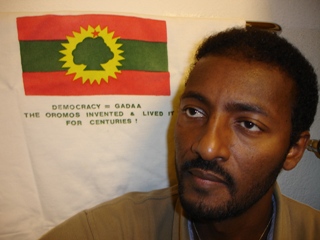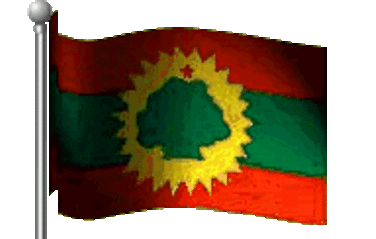Ethiopia, Zimbabwe are Africa's worst offenders in denying press freedom
Source: NATIONMEDIA.COM
By A CORRESPONDENT The EastAfrican
While an African Media Coun-cil conference held in Tanzania, last week was pleased to observe progress in East and Southern Africa regarding the establishment of self-regulatory Media Councils (in Tanzania ,Kenya, Zambia and Uganda), it strongly condemned developments in Ethiopia and Zimbabwe.
Journalists and media representatives from various African nations, including Zimbabwe and Ethiopia, termed the Ethiopian government’s treatment of journalists the most shameful on the continent."
"We find it shameful that Ethiopia is emerging as a pariah state on the African continent," said a hard-hitting statement signed by participants at the Regional Conference of Press/Media Councils at Bagamoyo, Tanzania.
The conference, organised by the Media Council of Tanzania (MCT), said that, in the two countries, journalists have been systematically "criminalised".
At least 20 Ethiopian journalists have been sentenced to long jail terms, and many others have been forced into exile while facing charges such as treason for exercising their basic right to free expression, thus ranking Ethiopia among the worst nations in the world for use of these methods.
MCT executive secretary Anthony Ngaiza observed that the Ethiopian regime has especially targeted the Ethiopian Free Press Journalists Association (EFJA) as an object of this repression. EFJA president Kifle Mulat, now living in exile in Uganda, attended the Bagamoyo meeting and had delegates in tears as he narrated the ordeal of his fellow journalists in Addis Ababa.
"We find it intolerable that any nation would employ these draconian methods against their own population", the delegates said, as they condemned the Ethiopian government for jailing journalists or any other persons for exercising their basic human right of self expression. They demanded the immediate and unconditional release of all held under these conditions.
Kifle Mulat said he was consoled when the conference opted for a strong condemnation of his government, which was asked to drop all charges against journalists and allow the return of those forced into exile without threat of punishment, whether through exercise of police power or by extra-judicial harassment or violence.
Sadly, for Zimbabwe, the past seven years have seen freedom of expression being downgraded from a right to a privilege that can only be exercised at the pleasure of the authorities, participants noted.
Matthew Takaona, president of the Zimbabwe Union of Journalists, told the Bagamoyo meeting that at least 100 journalists have been arrested over the past six years for violating the government's press laws, all of them from the private media.
He said four newspapers, including the country's biggest circulating daily, the Daily News, have been closed since 2003. And, as a result of the restrictive Broadcasting Services Act, independent radio stations have been kept off the air.
Every journalist in Zimbabwe must renew their registration every 12 months with the Media and Information Commission; they face up to two years in jail for practising without a licence.
Newspaper companies are also required to register after every two years. Those failing to comply are forced to close and their equipment is seized by the state.
However, the Bagamoyo gathering saw a ray of light at the end of the Zimbabwean press tunnel.
The Executive Secretary of the World Association of Press Councils, Chris Conybeare, who attended the Bagamoyo Conference, said there were indications that government officials support the establishment of a non-statutory, self-regulatory Media Council of Zimbabwe.
Oluma.a 07 05 1969



0 Comments:
Post a Comment
<< Home